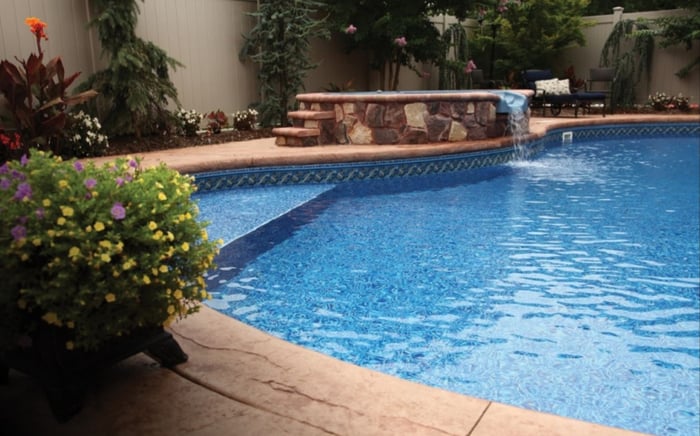If you're considering a saltwater pool, whether as a new build or converting your existing pool, then you probably have a lot of questions. You may have heard that saltwater pools have financial and environmental benefits, but what if they make your pool rust? Here are some questions you might have and the answers:
Does a Saltwater Pool Freeze?
Yes, saltwater pools will still freeze if you leave them full during the winter. They don't have the salt levels of ocean water. The freezing point is slightly lower than a traditional pool, but you will still need to close or winterize your pool. Also, salt cells will not operate at temperatures below 50 degrees.
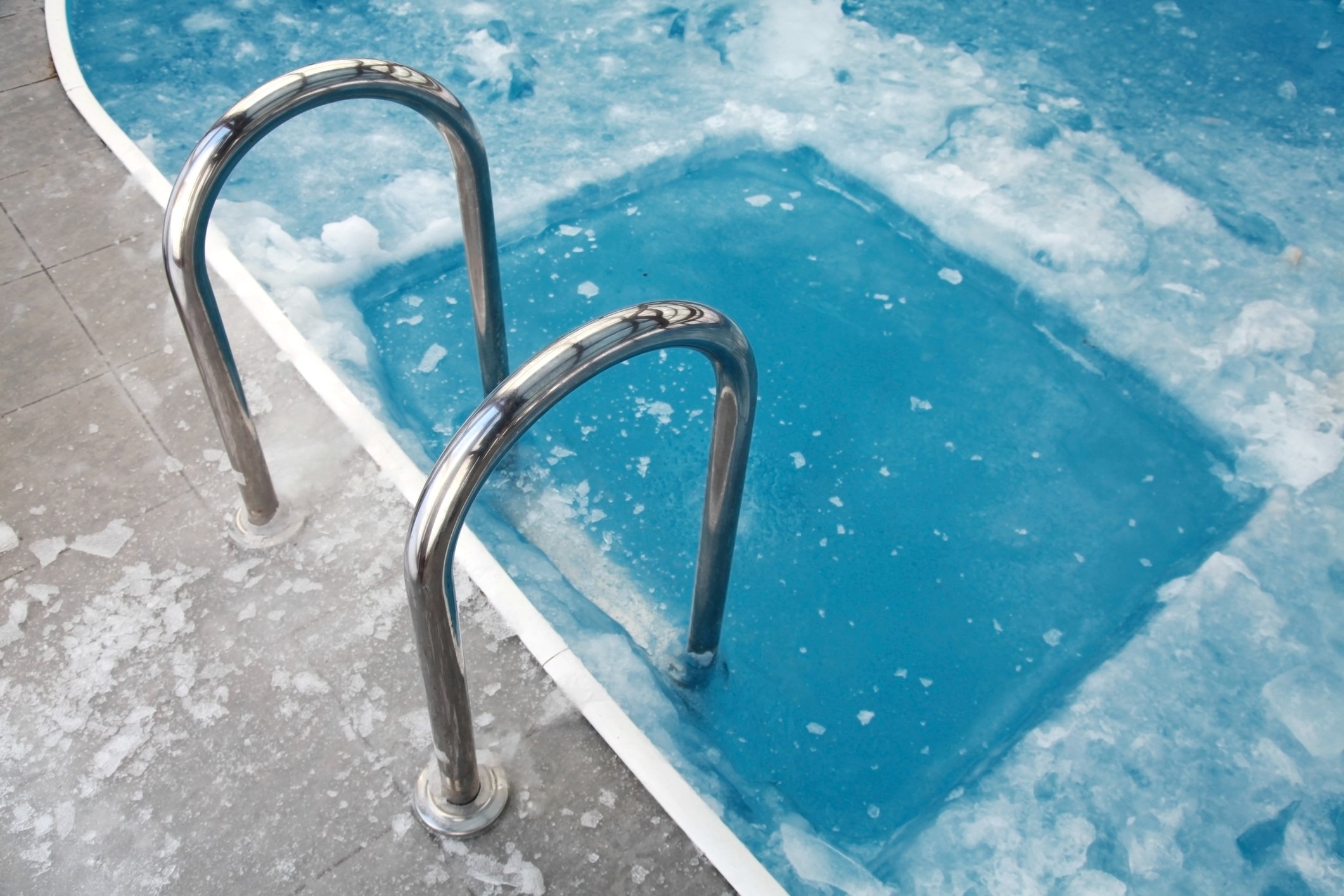
Does a Saltwater Tank Need a Filter?
Yes. Your pool will still need a filtration system, which is not significantly different from a traditional system. The primary difference is the addition of the salt cell, which is installed between the filter and the pool.
Does a Saltwater Pool Have Chlorine?
It's a myth that a saltwater pool does not use chlorine to purify the water. It absolutely does! The difference is that you are essentially making the chlorine on-site rather than adding chlorine tablets. This means that your saltwater pool will have considerably less chlorine and chlorine levels will be stable rather than fluctuating. You may still need to flush the pool with much higher chlorine levels occasionally, or simply add Revive! if the idea of shocking your pool doesn't make you happy.
Does the Water Taste Salty?
No. Again, this isn't ocean water. The salt levels are a fraction of what you encounter if you decide to swim in the sea or in a hotel's sea pool. It's well below the threshold of human taste at about 3,000 parts per minimum, as opposed to the 35,000 ppm in the ocean. If there is a salt taste to the water it may mean that you have a chemical imbalance or your salt cell has a problem. A very small number of people may be able to detect the faintest of salt tastes, but for most people, there should be no detectable taste of salt. There also isn't enough salt in the water to make swimming and floating easier.

Does the Pool Still Smell of Chlorine?
So, there's still chlorine in there. Is there still a chlorine smell? Saltwater pools should actually have no detectable odor at all, and if there's a chlorine smell it means there's an imbalance. Somebody with a very sensitive nose may pick up on it, but one of the advantages of a saltwater pool is avoiding that extreme chlorine stench.
Is it Safe? Does the System Kill Enough Germs?
You might ask whether the lower levels of chlorine actually keep the pool clean and germ-free. The answer is yes: Although saltwater systems use less chlorine, the fact is that traditional chlorination systems are often overkill. They are essentially the same thing with a different, and smoother, delivery system for the chlorine. There's also enough chlorine in the system to kill algae.
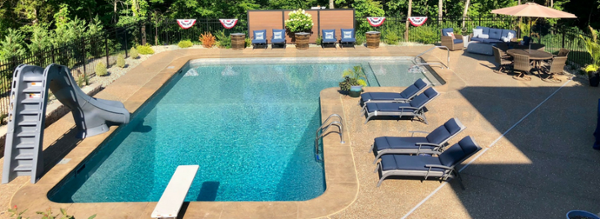
Is it Better For You?
Absolutely. The biggest advantage of a saltwater pool is that it reduces your chlorine exposure. First of all, this prevents the "chlorine hair" phenomenon that serious swimmers (and their parents) know only too well, as well as reduces eye irritation. For young swimmers, this can be really important, as that eye irritation can make them unwilling to put their head under water and learn to swim properly. It's also better for your swimsuit. Too much chlorine exposure may also increase your risk of cancer. So, yes, a saltwater pool is much better for you.
Will the Salt Rust Your Pool?
There is, yes, some risk that the salt in the water will corrode your pool or pool elements. For above ground pools, you should not use a saltwater system with a steel or aluminum pool, as it will destroy the pool. A resin pool, however, should be fine. Vinyl pool liners are also good at resisting damage from salt. If you do use a saltwater system with an above ground pool, you should check and, if necessary, replace metal components regularly.
One vital way of reducing corrosion and rust damage is a sacrificial anode. This is a zinc part that hangs out next to the parts you need to protect and takes the damage for them. You replace the anode about every three years or so. Bear in mind that the anode has to be properly bonded and grounded, and thus you will need a licensed electrician to install it.
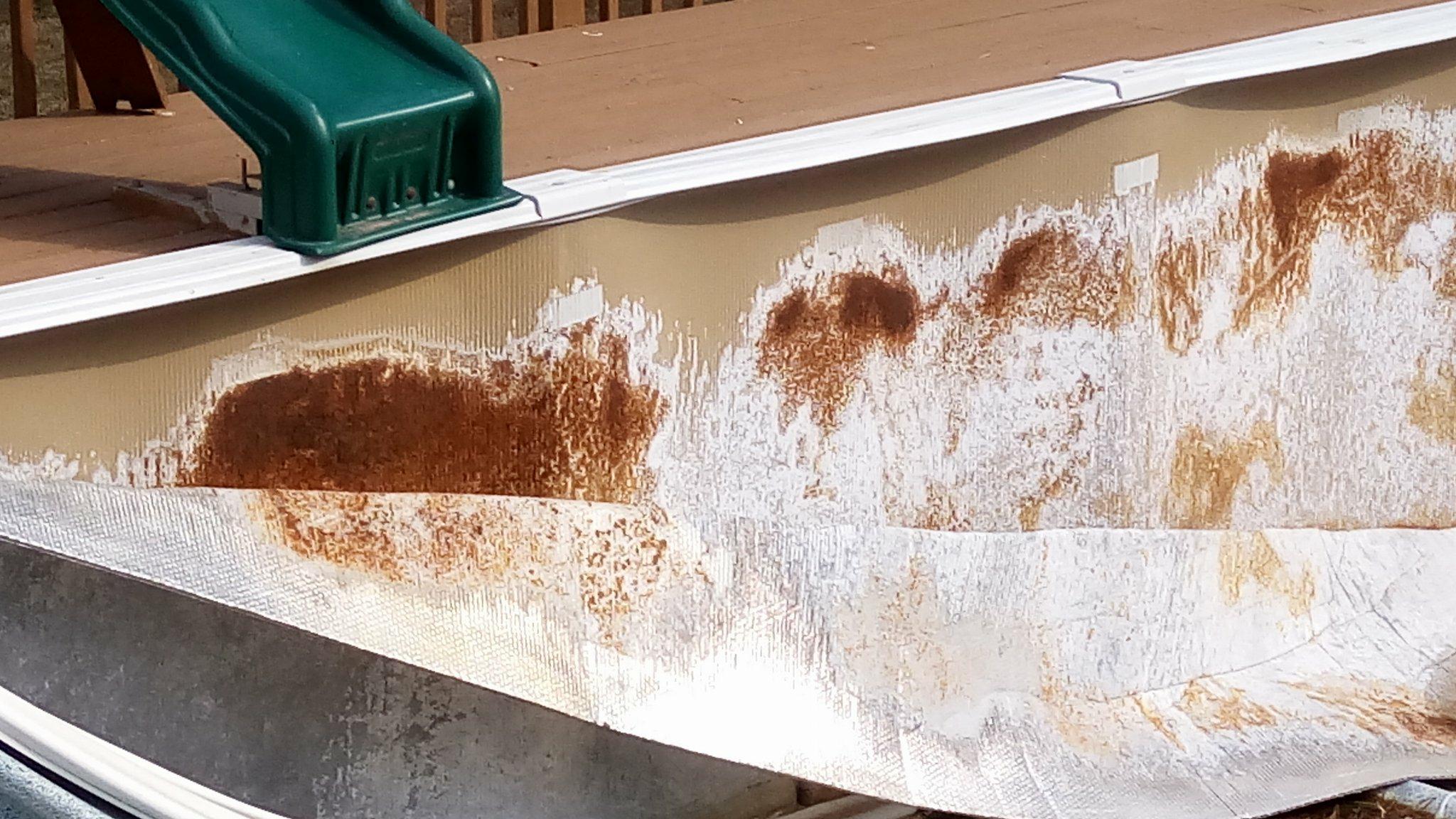
Will Adding a Salt System Void the Warranty?
Potentially, yes. Some manufacturers exclude the use of a salt system because if you mess up, you can seriously corrode your pool. Obviously, if your pool is out of warranty this is not a concern. It doesn't mean that a salt system isn't compatible with your pool, as long as it's not primarily of metal construction.
Can I Use Ordinary Table Salt?
Technically, yes, as long as it's not anodized. However, in the quantities you need it, proper pool salt is cheaper. Purified pool salt is, though, actually food grade. You should not use rock salt or solar salt, as these can stain your pool.
While you don't want t use regular salt in your swimming pool, you also want a special kind of pepper!
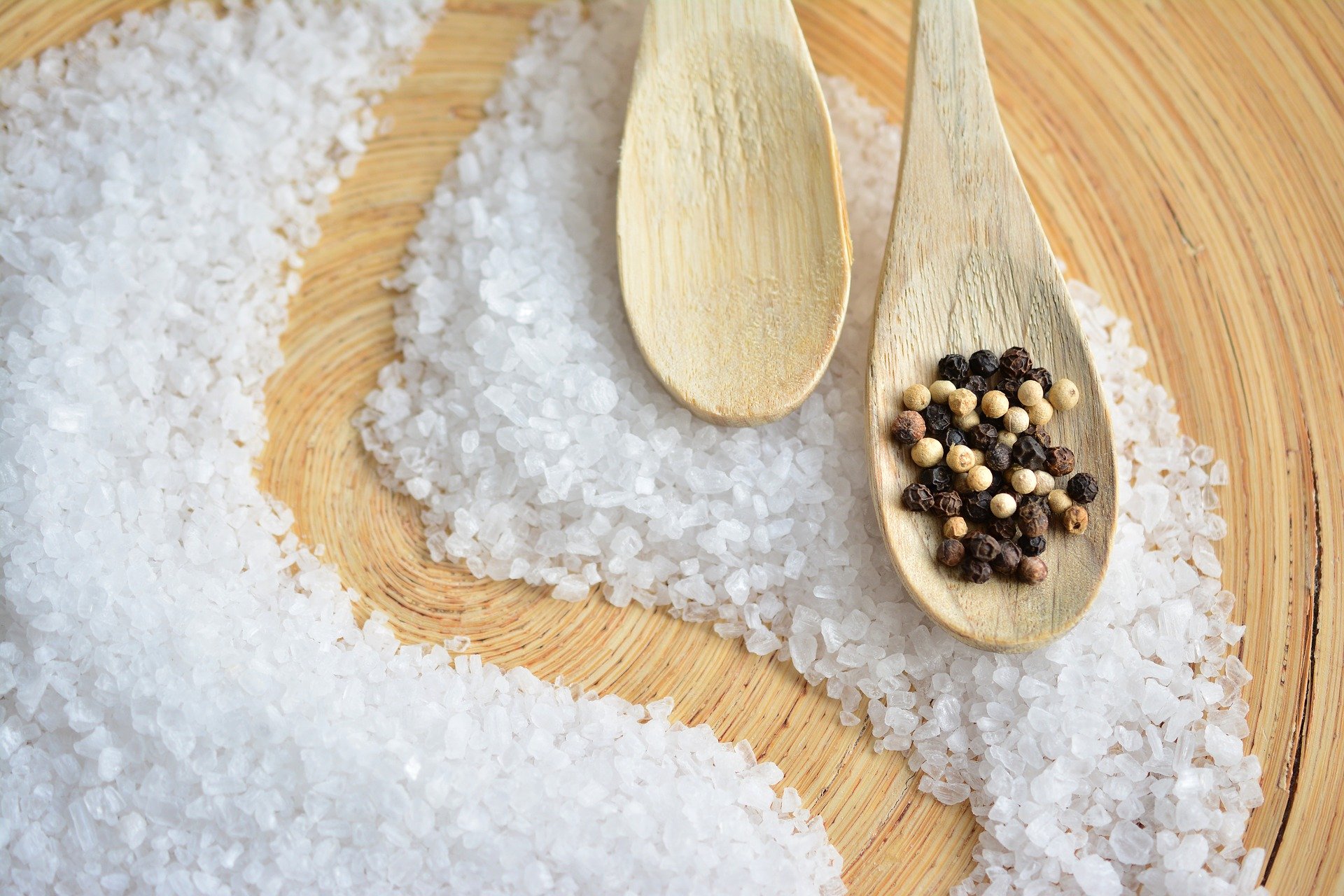
Is It True that Saltwater Pools Need No Maintenance?
No, it's not true that a saltwater pool needs no maintenance. What is true is that they need considerably less maintenance than a regular chlorine pool.
Saltwater pools still need to be properly winterized before closing them and opened when the season started. For routine maintenance, you should test the pH and free chlorine levels every week, the salt levels every month, and inspect the salt cell every three months. This is still a lot less work than a traditional pool. Adding PEPPER® to your pool can also help keep it in good health.
.jpeg?width=1885&name=WON%20Joe%20LoPiccolo%204%20(review%20included).jpeg)
Saltwater pools are superior to traditional pools in many ways. It's very important, however, to understand the differences and not believe the various myths that circulate. If you are looking at building or converting a saltwater pool, we have everything you need from sacrificial anodes and salt cells to full saltwater compatible pools, both above ground and inground.
We hope that answers the most common questions you have about saltwater pools. Here are some additional resources you may find helpful!
- How to Maintain a Saltwater Swimming Pool
- CHLORINE SHORTAGES + PRICE INCREASES LEAD TO ALTERNATIVE SOLUTIONS
- How to Convert a Chlorine Pool to a Saltwater Pool
- OPEN YOUR POOL SOONER (AND A LOT EASIER) WITH POOL FROG AND EZ POOL
- How To Troubleshoot Problems with Your Salt Cell
- MAKE KEEPING YOUR POOL CLEAN AND CLEAR EASY WITH EZ POOL!
- Type of Salt to Use with a Swimming Pool Salt System
- HOW TO CLEAN A MURKY GREEN POOL FAST WITH REVIVE!
- How To Clean the Salt Cell on Your Saltwater Swimming Pool
- HOW TO WINTERIZE YOUR POOL
- The Perfect Solution for Your Saltwater Pool: PEPPER
- Saltwater Above Ground Pools: A Buyer’s Guide







